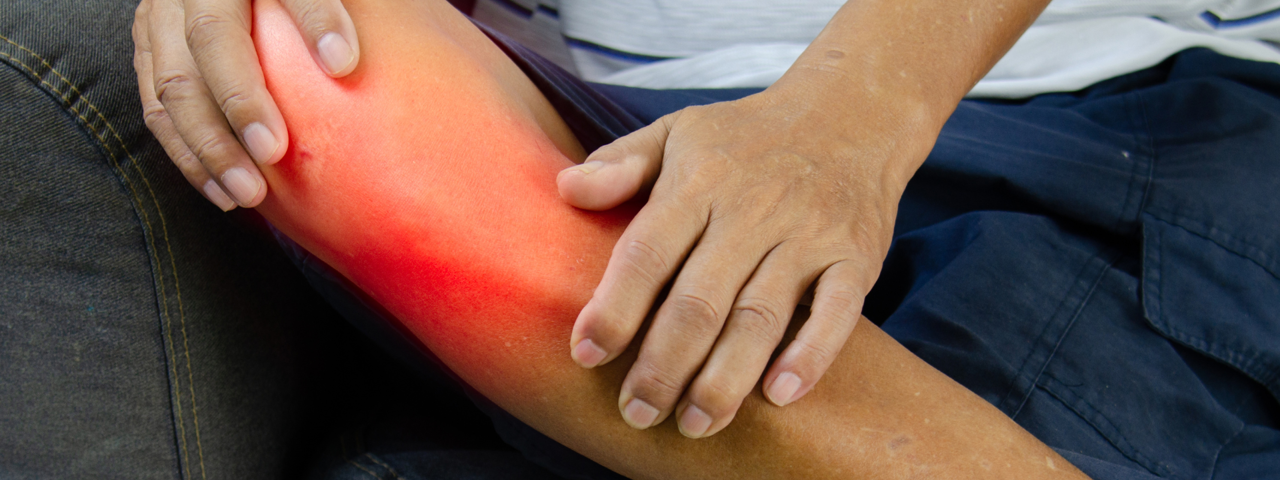
Trial running at the Royal Berkshire Hospital offers hope for osteoarthritis patients
Working in partnership, the Royal Berkshire NHS Foundation Trust and University of Reading have reached a UK-first milestone in their research into the treatment of osteoarthritis, showing long-term evidence of efficacy and safety with a minimally invasive treatment for a condition effecting millions of people across the UK.
The GENESIS I trial, which has been running for six years, focuses on a procedure called Genicular Artery Embolisation (GAE) as a treatment for patients with mild to moderate osteoarthritis symptoms where conservative treatment, for example painkillers or physiotherapy has not been successful.
Osteoarthritis is the most common type of arthritis, affecting nearly 9 million people in the UK. Similar to may conditions which present with chronic pain, it has far-reaching impacts on quality of life, and the ability to carry on with normal activity at home and at work. It is a condition where the protective cartilage on the ends of the bones breaks down, causes problems moving the joint. Pain is caused by inflammation and the growth of new blood vessels. It occurs mostly in older people. Painkillers can be used to treat mild cases, however surgery to replace the knee may be needed in severe cases.
The procedure at the centre of the GENESIS study involves injecting tiny plastic beads - the size of a grain of sand - into the knee to block the blood vessels that inflame the tissue and cause pain. It involves positioning a plastic catheter tube into the abnormal blood vessels through a pinhole incision in the groin. X-rays are used to position the catheter into the arteries before the plastic beads are injected through it. A similar study in Japan found a 80 percent clinical success rate over a three-year period.
Treating 40 patients at the Royal Berkshire Hospital in Reading, and following them for a 2-year period, the final paper for Genesis I, which contains the largest European dataset, and longest follow-up period for this type of treatment, shows it is safe and effective beyond the expected significant placebo timeframe. It provides a potential gamechanger for the treatment of osteoarthritis. It could reduce the number of patients needing a knee replacement surgery, contribute towards reducing waiting lists and offer both the NHS and patients another way to tackle this condition. Performed under only local anaesthetic, the procedure takes about one hour, and patients go home the same day - truly minimally invasive.
Professor Mark Little, Consultant Interventional Radiologist, and GENESIS study lead said, “Getting to this point has been years in the making, and is testament to the work of teams at the Trust, the University of Reading, and of all the patients who have been involved in this trial. It’s extremely encouraging to see results showing this treatment is both safe, and potentially effective in treating what can be constant, and debilitating pain.
“We are now focused on the next step towards making this an available treatment within the NHS. We are currently running the GENESIS 2 trial. Which is a large, randomised sham-controlled trial. We are currently halfway through treating the 110 patients to be included in the study. GENESIS 2 will further investigate the safety and efficacy of GAE in patients with mild to moderate knee Osteoarthritis.
“Taking part in research like this not only gives patients access to ground-breaking treatment options, it also helps to advance the treatment we can in time offer to all patients.”
If you suffer from mild to moderate osteoarthritis of the knee, and are interested in taking part in GENESIS 2, please contact radiologyresearch@royalberkshire.nhs.uk
